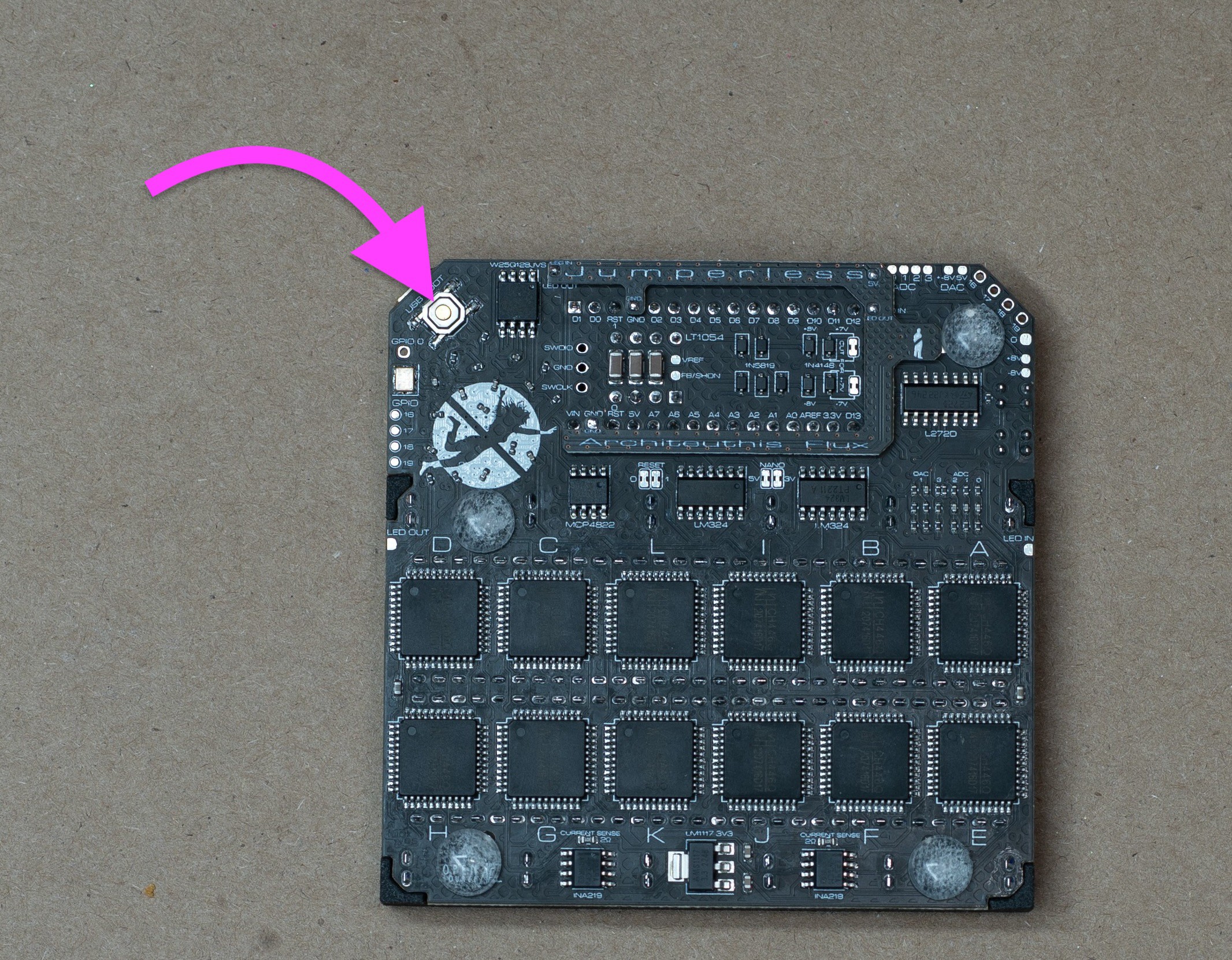
After you've unboxed (and maybe assembled) your Jumperless, we're going to need a way to talk to it.
Now, the Jumperless is very open and will accept netlists from any program with some basic formatting, if you hate Wokwi and want to use something else, this project log should give you an idea of what format it accepts over serial so you can write your own Bridge to any software you like. But for now, I'm focusing on Wokwi because I think it's better to have solid support for one workflow than shitty support for a bunch.
I ship these with the latest firmware installed, so if you just received your Jumperless in the mail, you can skip the firmware update. But I usually push minor fixes to that firmware.uf2 file every few days, so it's probably worth doing anyway.
On your Jumperless, there will be a little button on the opposite side of the USB port. This is the USB Boot button and works exactly the same as a Raspberry Pi Pico.

1. Hold the USB Boot button and plug the Jumperless into your computer.
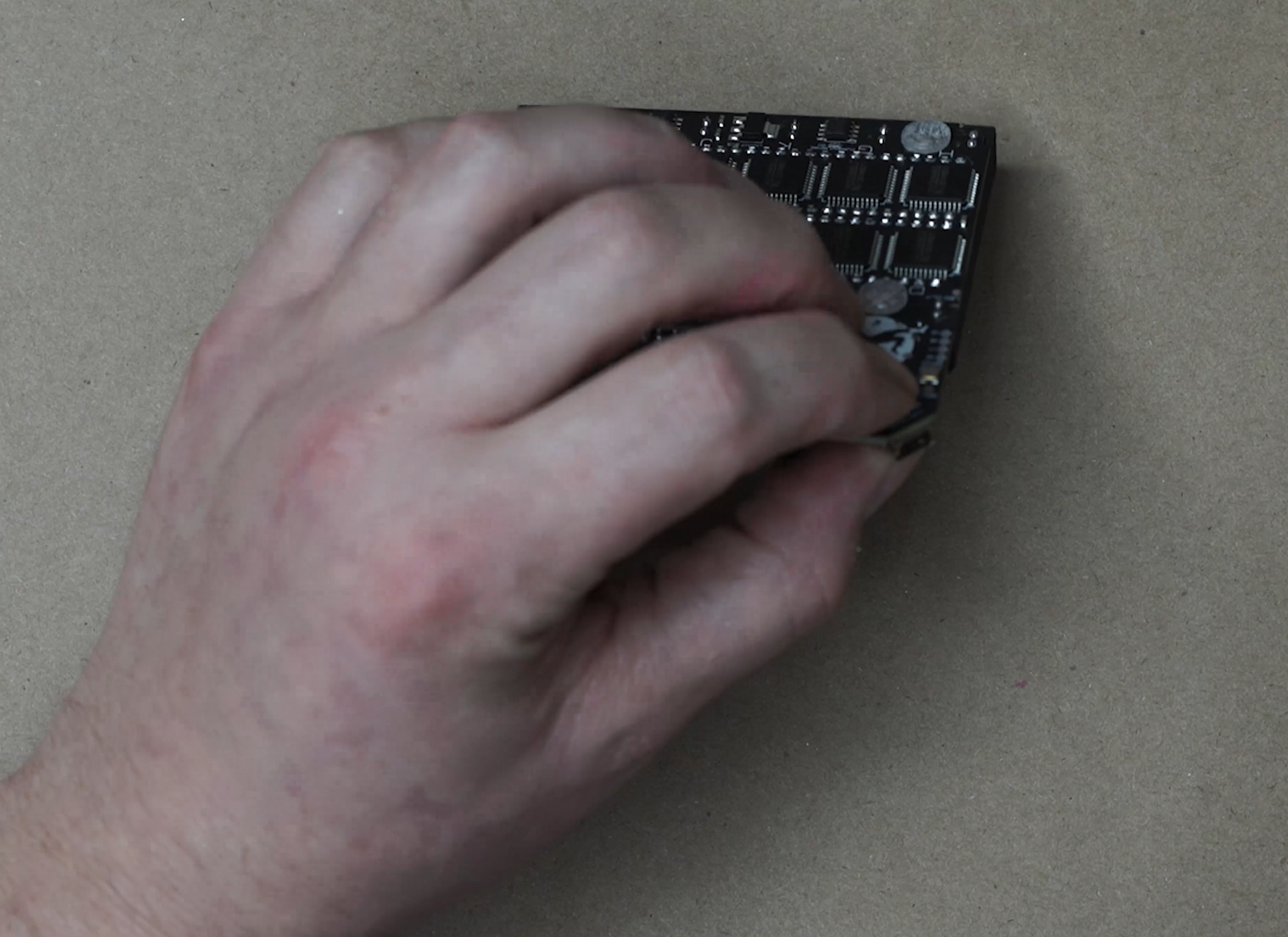
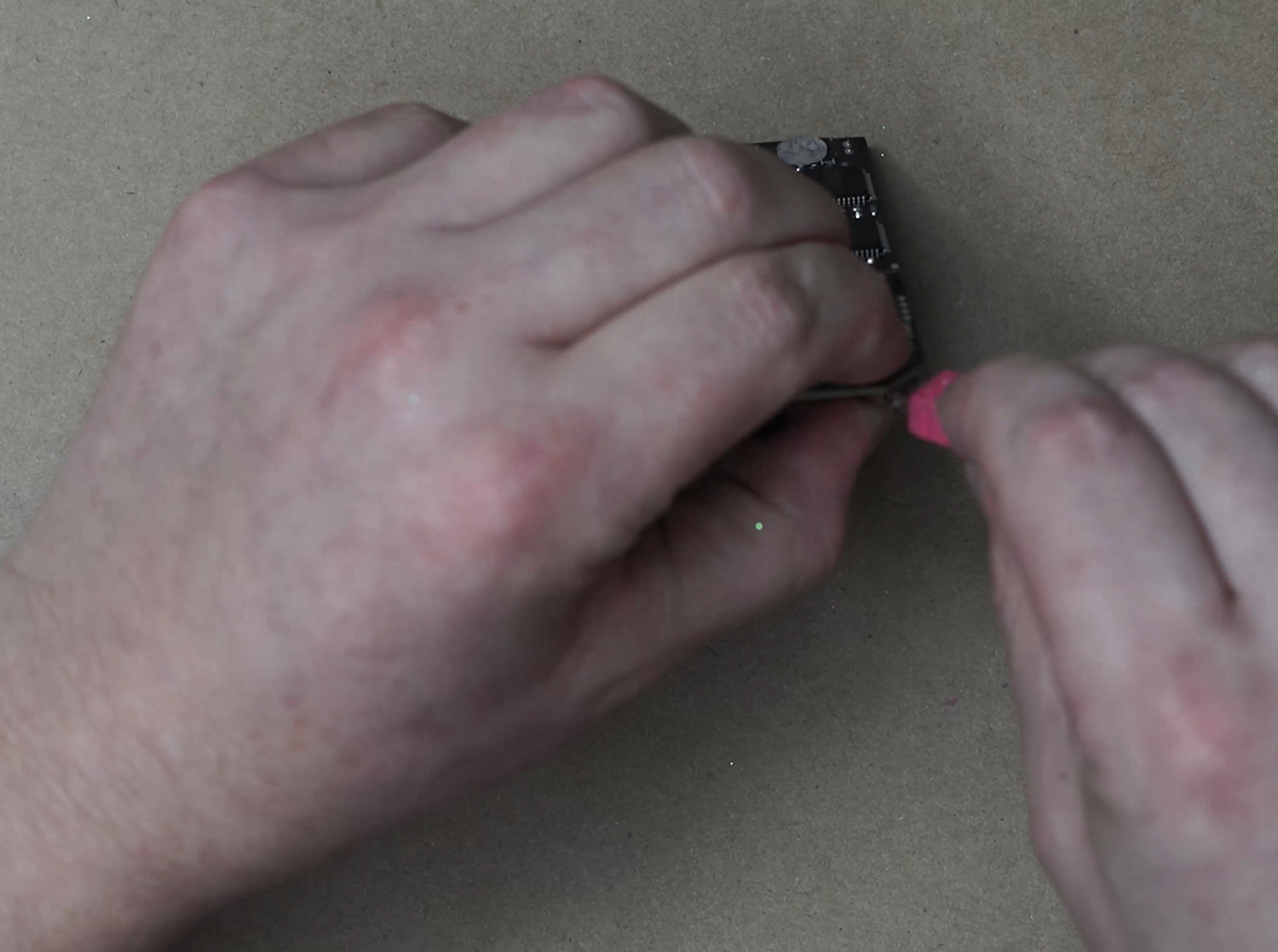
2. A drive should pop up called RPI-RP2. Drag the firmware.uf2 file into it and it should reset and you're done!
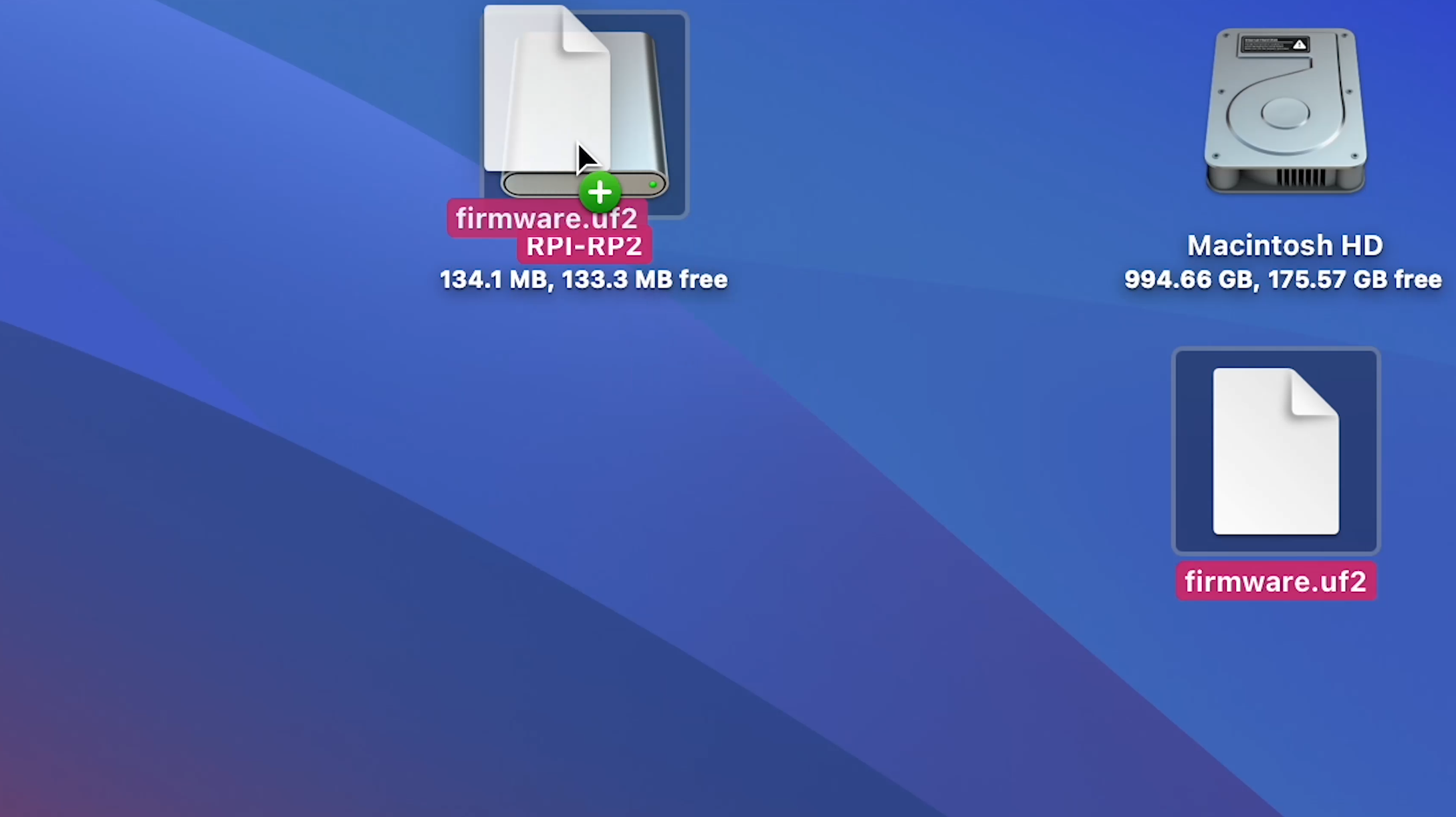
I'm showing this on a fresh install of macOS, but Windows should be roughly the same.
1. On the releases page, download JumperlessWokwiBridgeMacOS.zip (or the .exe for windows) and firmware.uf2
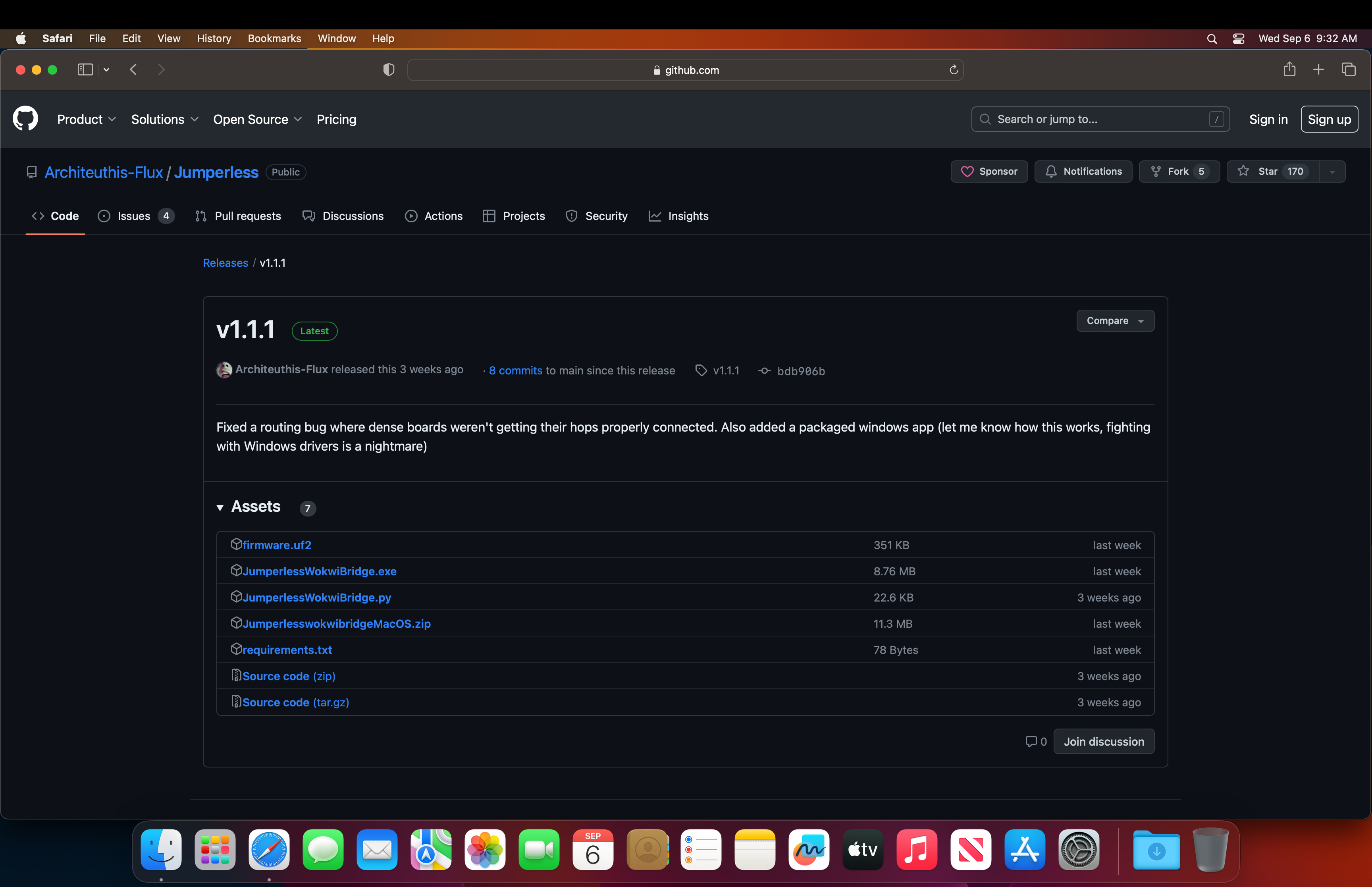
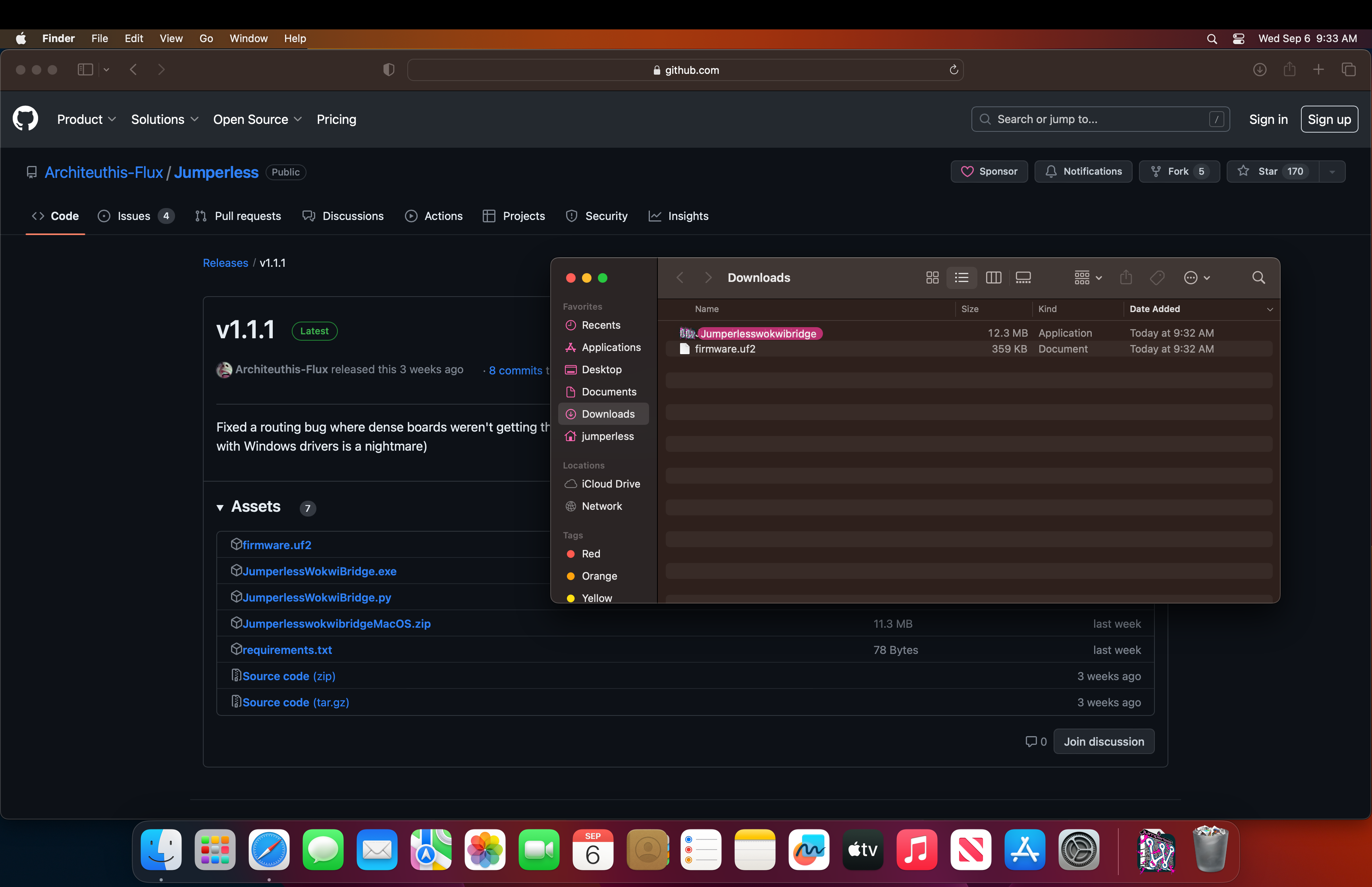
2. It should automatically unzip in your downloads folder. Note that this won't run correctly from anywhere but your Applications folder, so drag it there.
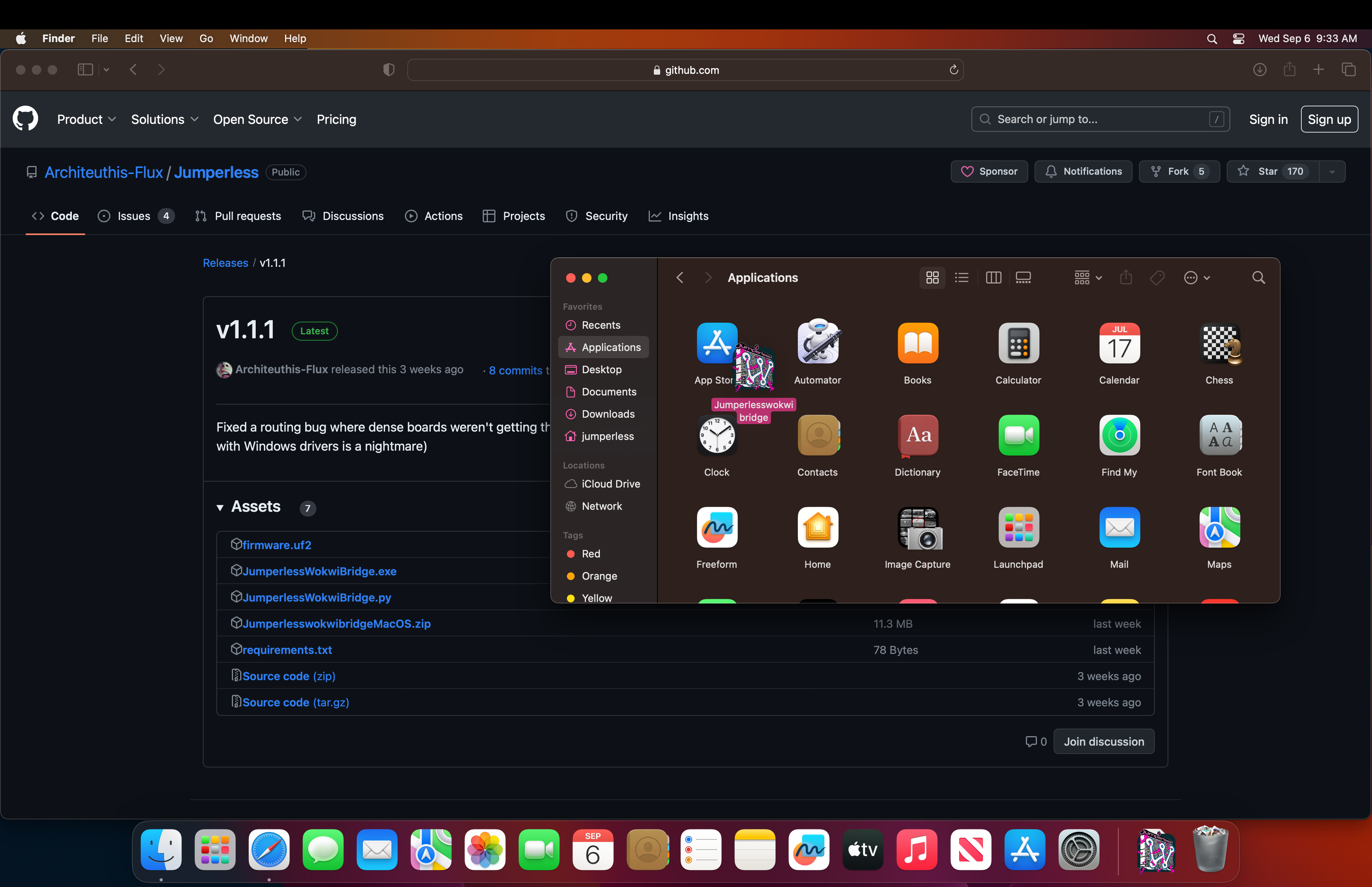
3. Click it to try to run it. Unless you've set your security setting to allow apps from anywhere, it's going to complain.
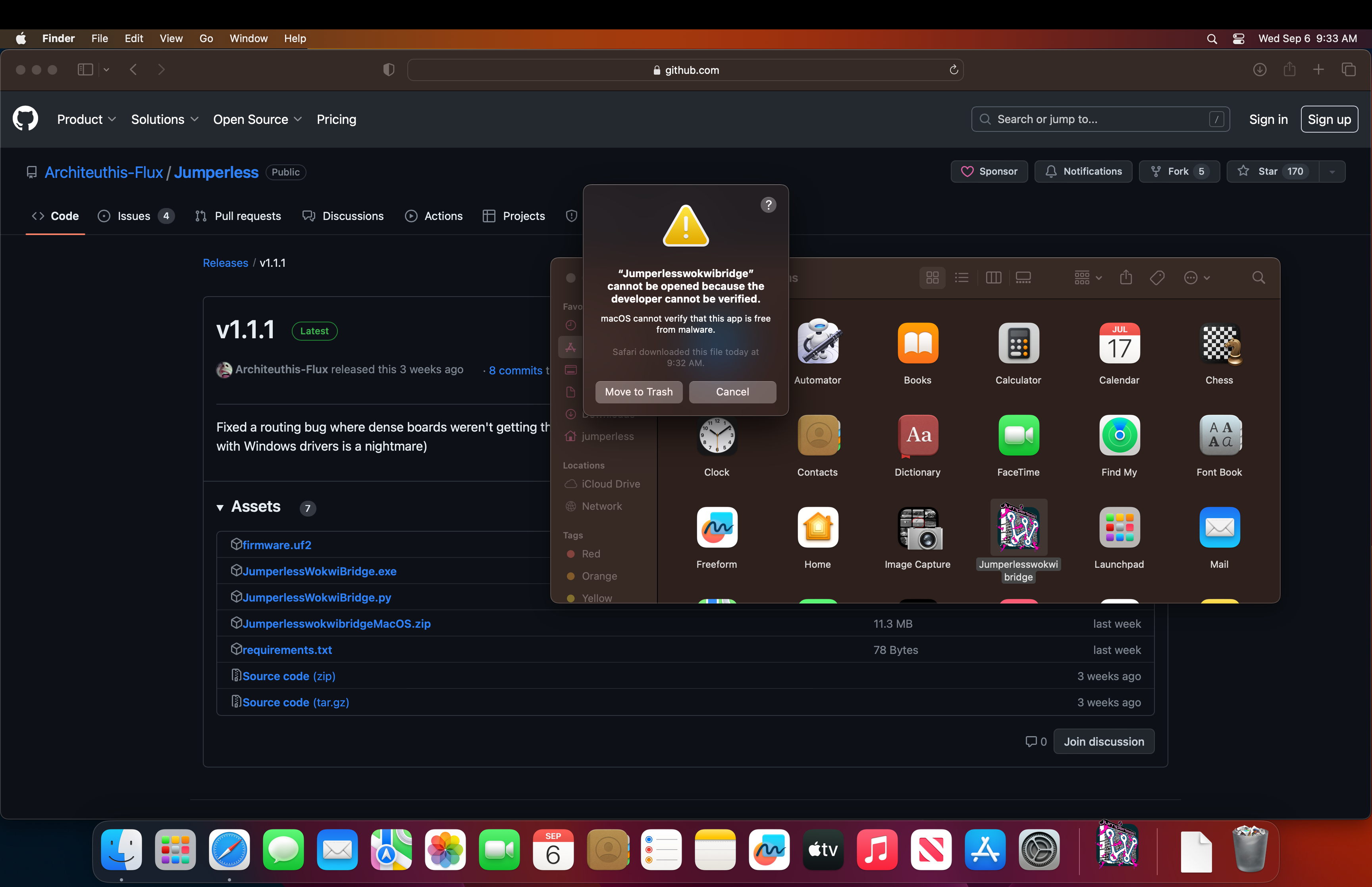
4. Click Cancel and go to Settings > Privacy and Security > scroll down and click Open Anyway
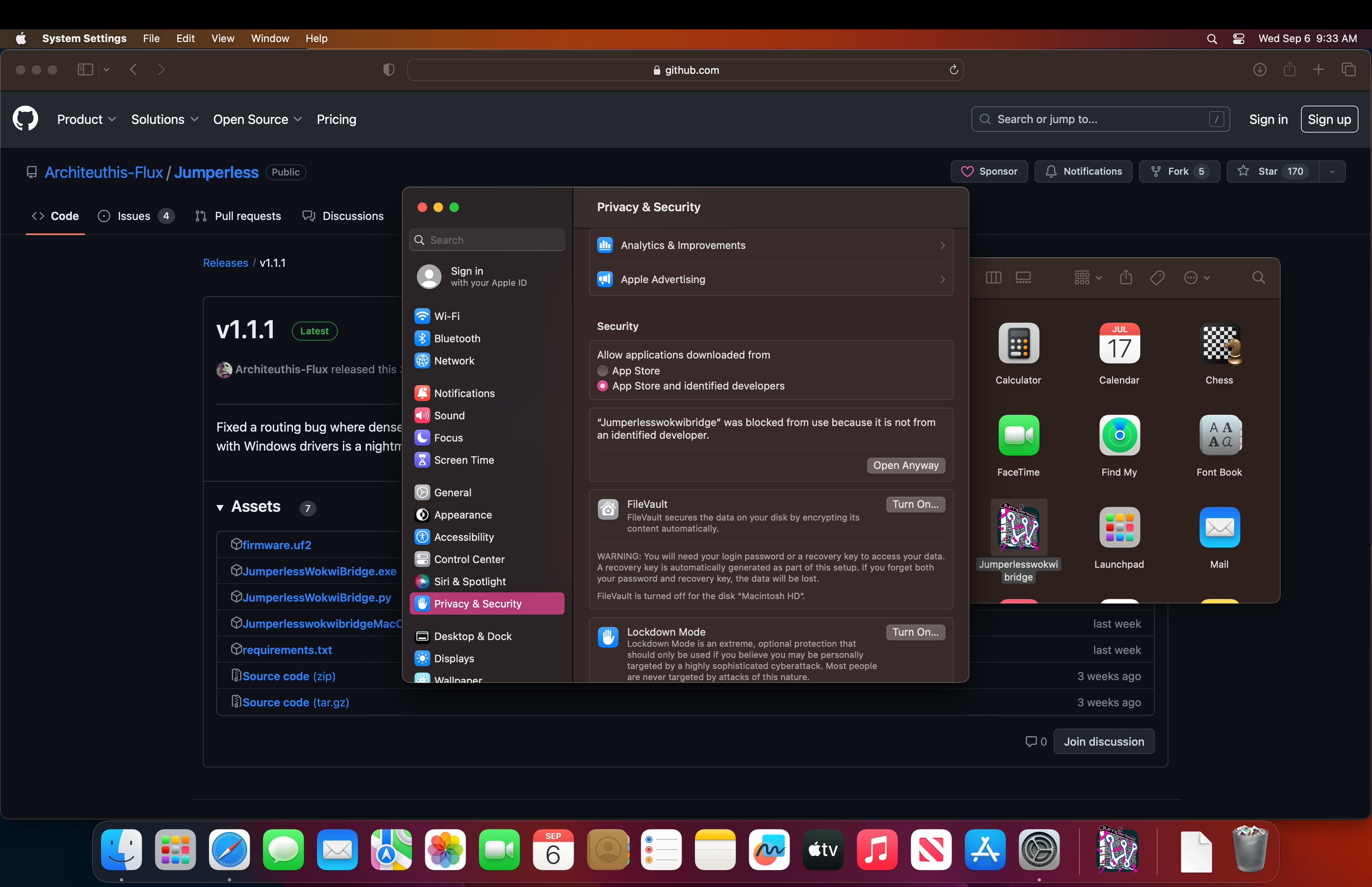
5. It's going to complain again and just click Open
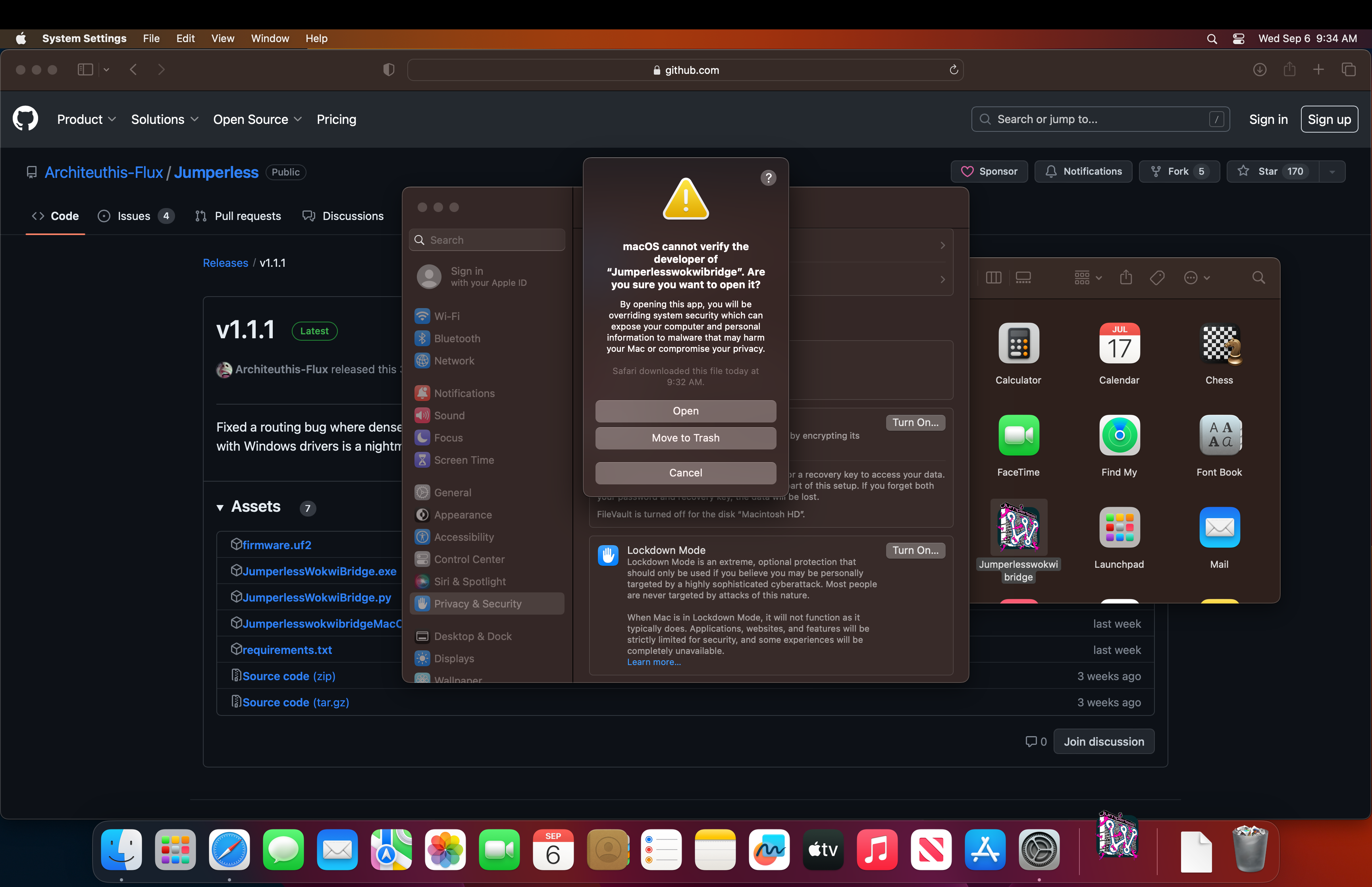
Hot tip: run
sudo spctl --master-disable
in Terminal to give you another checkbox for Anywhere under Settings > Privacy and Security > Allow Apps From. And you won't have to go through this again for other shoddy software.
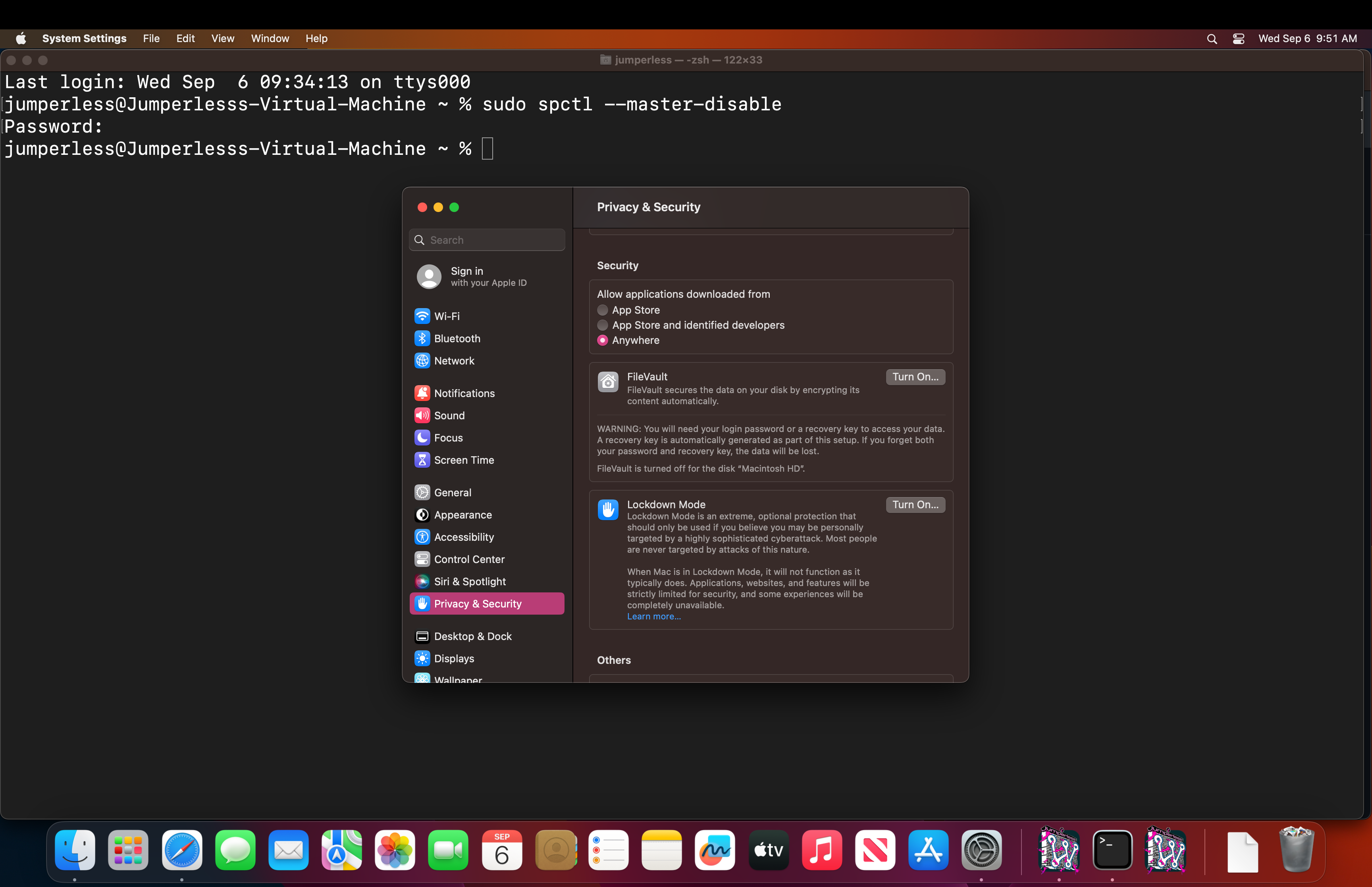
6. If everything goes well, you should now be presented with a Terminal window like this
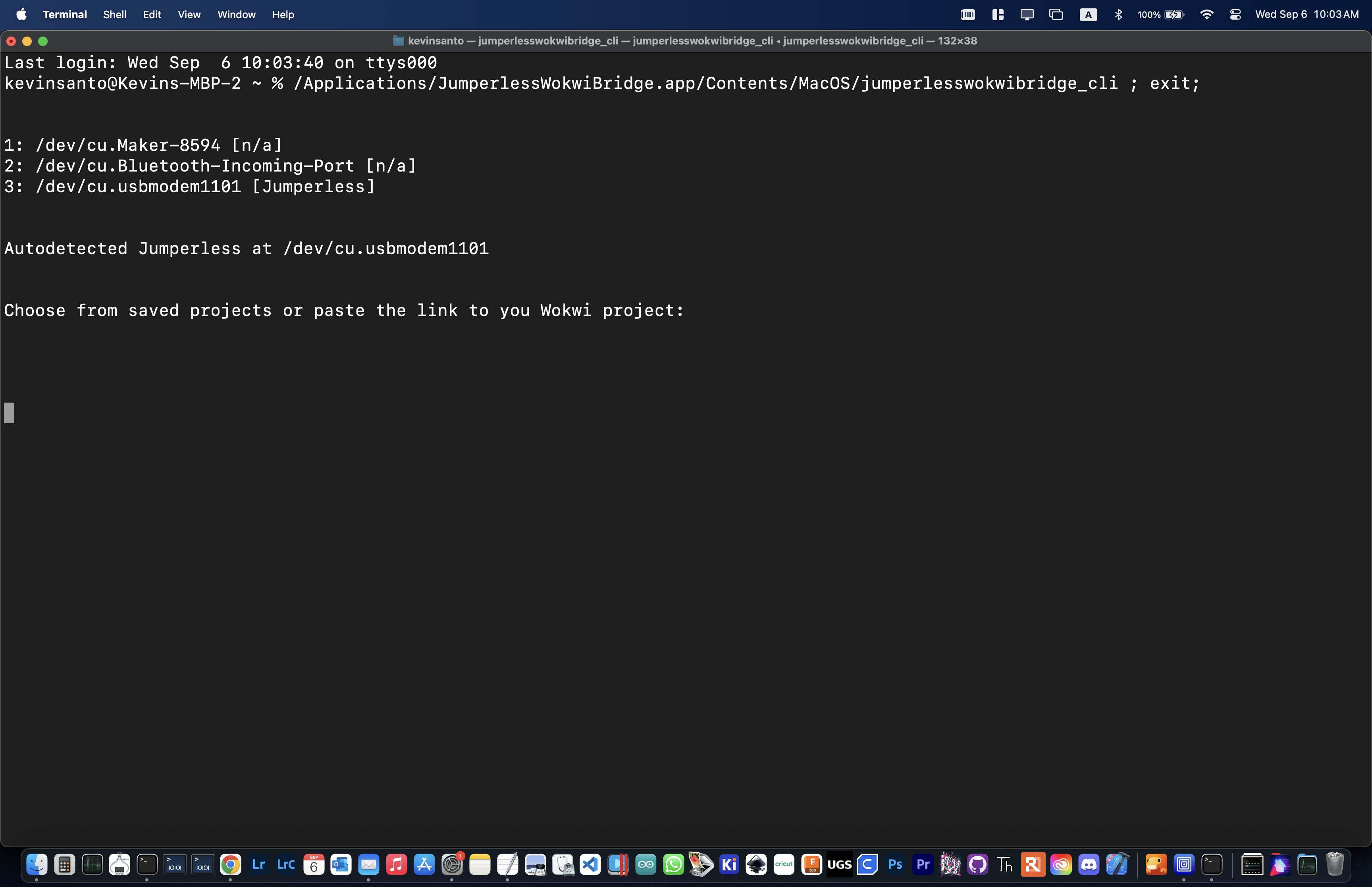
Note that on MacOS, it should just autodetect and connect to the Jumperless if it's plugged in when you start the app, if not, just plug it in and type 'r' to rescan the ports until it finds it.
Okay, now the app is set up, what do we paste into there to connect to our Wokwi project?
You'll need a stable link to your Wokwi project, and it will only make one when you're signed in and have saved your project to "My Projects". After that the links are saved in a text file in the JumperlessWokwiBridge app and you'll be able to select projects you've used before from a list.








 (note that the URL has now changed to a unique link)
(note that the URL has now changed to a unique link)
 It will put it somewhere random, so click somewhere that’s not a hole to drag it.
It will put it somewhere random, so click somewhere that’s not a hole to drag it.


 (on mac it will autodetect the port if it’s plugged in, on windows you’ll need to select the COM port here first, if the Jumperless wasn’t connected when you opened the app, press ‘r’ the Enter to rescan the ports)
(on mac it will autodetect the port if it’s plugged in, on windows you’ll need to select the COM port here first, if the Jumperless wasn’t connected when you opened the app, press ‘r’ the Enter to rescan the ports)





Here are some non-steps but more general tips:









 Connect D3 (ADC 3) to the same breadboard row as pot2:Sig (DAC 1) and the brightness will track the output.
Connect D3 (ADC 3) to the same breadboard row as pot2:Sig (DAC 1) and the brightness will track the output.
 (Note: the pins are numbered the same as the ADCs, so D0 = ADC0 (pin 26), D1 = ADC1 (pin 27), etc.)
(Note: the pins are numbered the same as the ADCs, so D0 = ADC0 (pin 26), D1 = ADC1 (pin 27), etc.)

I’ll add more tricks as I think of them. If you have any questions about how to use any particular thing, or suggestions for things to work on supporting, let me know.
You can email me at KevinC@ppucc.io or message me through any channel you prefer.